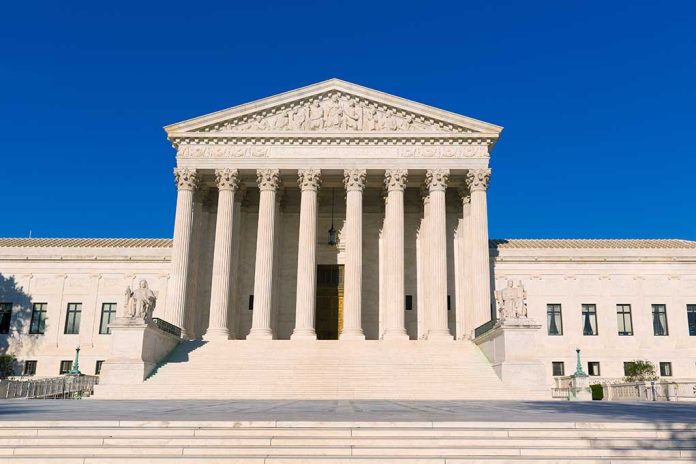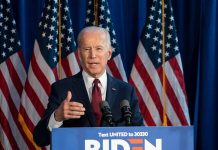
(NewsInsights.org) – Few election cases have reached the Supreme Court (SCOTUS). The nation’s highest courts has habitually deferred those issues to lower courts or refused to hear them. However, on January 5, the SCOTUS agreed to hear Trump v Anderson, better known as the Colorado ballot case, via the Court’s emergency docket. During oral arguments, presented on February 8, one liberal Justice surprised observers by potentially delivering a death blow to Colorado voters’ case with a single question.
Last fall, a group of Colorado voters sued Colorado’s Secretary of State demanding that the state remove former President Donald Trump’s name from primary and general election ballots. After legal wrangling through the courts, the Colorado Supreme Court held on December 19, 2023, that Section Three of the 14th Amendment, sometimes called the Insurrection Clause, disqualified the former president from holding any future elected office.
However, the Colorado High Court ordered the Colorado Secretary of State to maintain Trump’s name on the ballot until the SCOTUS had the opportunity to decide whether it would hear the case on appeal. Based on reactions from SCOTUS observers, most believe that the Justices are leaning toward vacating the Colorado Supreme Court decision.
Jason Murray presented arguments to the SCOTUS on behalf of defendant Norma Anderson and the group of Colorado voters who originally brought suit last fall. Murray argued that by engaging in insurrection, Trump had “disqualified himself from public office,” according to SCOTUSblog. Yet, Justices questioned the enforcement of the Insurrection Clause, and Justice Elena Kagan, who typically votes with the liberal block, stopped Murray in his tracks with a single question.
Justice Kagan: "The question that you have to confront is why a single state should decide who gets to be President of the United States." pic.twitter.com/2zO4UeJos4
— CSPAN (@cspan) February 8, 2024
Kagan told Murray he needed to confront the question of “why a single state should decide who gets to be president of the United States,” commenting that the enforcement of the Insurrection Clause “sounds awfully national” and should perhaps require national or federal resources, not just the voices of voters from a single state. She asked Murray to defend his position that a single state should, in effect, be able to decide for the nation whether an individual could appear on the ballot.
Kagan wasn’t the only liberal Justice throwing cold water on Murray’s case, either. Justice Ketanji Brown Jackson also took issue, as did a lower court, with the fact that Section Three does not mention the president among the officers listed. She pointed out, “they were listing people that were barred, and president is not there,” according to The Guardian.
Chief Justice John Roberts also chimed in expressing concern. He posited that should the Court uphold the Colorado decision, it could result in a cascade effect. Traditionally Red states might seek to disqualify Democratic presidential candidates, and he predicted some could succeed, potentially giving rise to a crisis in which only “a handful of states” might determine the outcome of a presidential election.
Observers expect the High Court will return a decision quickly, but the Justices didn’t indicate when they might issue their findings.
Copyright 2024, NewsInsights.org

















